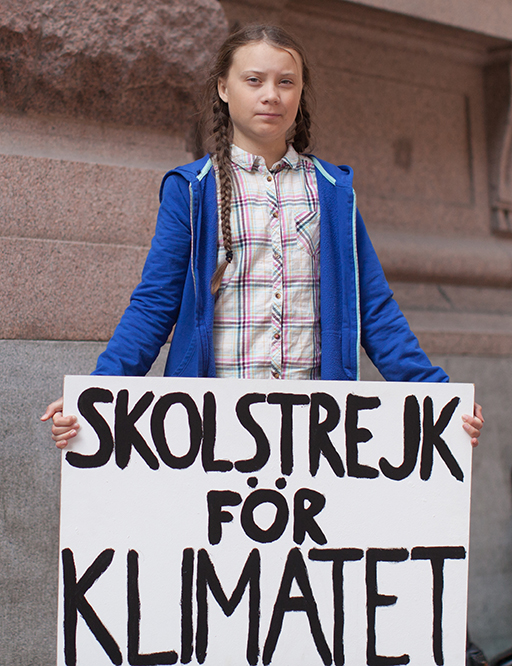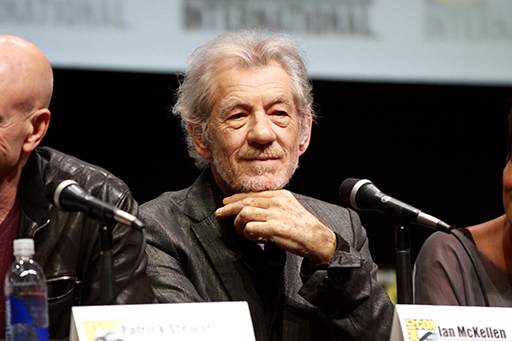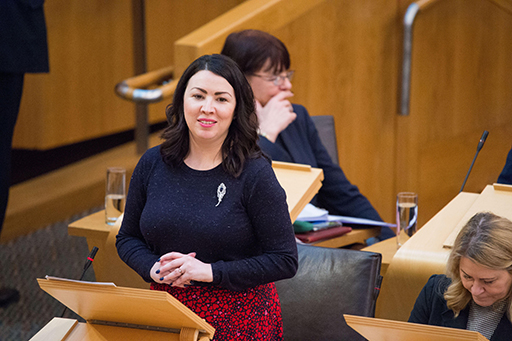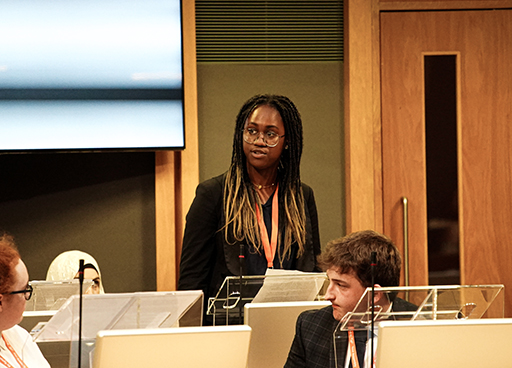6.1 Inspirations
Which examples inspire you? Who can you learn from? While some (but not all) of the changemakers chosen have undoubtedly been able to harness their fame or position in making change, something not open to most of us, they all demonstrate how small actions can lead to big change, inspire others to act, raise the profile of important issues, and make change politically.
| Highlighted | |
|---|---|
| HighlightedMaking change through peaceful protest | |
Who: Greta Thunberg, a Swedish environmental activist. Category: Peaceful protest, media activism and petitioning. Action: At the age of 15 she demonstrated outside the Swedish Parliament, calling for more action on climate change, holding up a sign which said: ‘school strike for climate’. Other students joined in across the world, creating a youth climate strike movement. Impact: Her initial small step of individual peaceful protest inspired a youth movement across the world, got politicians to engage with climate change issues, and improved public awareness. Her impact has been called the ‘Greta effect’. Challenges: Intense media/social media coverage and criticism from politicians and others. |
|
| HighlightedMaking change through sport | |
Who: Marcus Rashford, a British footballer and free school meals campaigner. Category: Media activism, lobbying and economic activism. Action: With food waste charity FareShare he raised over £20 million to provide free food for children who could no longer receive their free school meal due to the Covid-19 pandemic. He then lobbied the UK government about child poverty and free school meals. He has continued to campaign about this issue. Impact: His highest profile impact was influencing the government to change its policy and extend free school meals for children. By doing this he also raised the profile of the issue in the media and with the general public, leading to a national conversation about food poverty. Challenges: Bringing politicians on board with his ideas. His earlier campaigning (supplying food boxes for young homeless people in Manchester) also had a limited reach, demonstrating the challenge of making a campaign successful on a large scale. |
|
| HighlightedMaking change through engaging with UK Parliament | |
Who: Ian McKellen, actor and LGBT campaigner. Category: Media activism and lobbying. Action: One of the founders of the UK gay rights (now LBGT rights) charity Stonewall in the 1980s, he worked with the charity to lobby the UK Parliament to reform equality law (issues like the repeal of Section 28 and the introduction of an equal age of consent). The charity set out to professionally lobby and engage in the political process in order to initiate change, influence and work with politicians. Impact: A slow and steady change in the law and public attitudes. As one of the most high-profile publicly gay actors, he has also inspired generations after him to be out and proud. Challenges: The length of time it took to effect key political changes, and early hostile media attitudes. |
|
| HighlightedMaking change through working with young people as stakeholders in Northern Ireland | |
Who: Pure Mental NI (puremental.org) Category: Lobbying, media activism and social media. Action: A youth led charity set up to put pressure on the Northern Ireland Executive about mental health issues (education and early intervention) in primary and secondary schools in Northern Ireland. They have designed mental health toolkits for teachers to use with students, they lobby politicians to try and improve mental health provision in schools, and they undertake research. Impact: They have already had some key wins on improving mental health services in schools. Challenges: Juggling working for change alongside other responsibilities, funding. |
|
| HighlightedMaking change through Scottish Parliament legislation | |
Who: Monica Lennon MSP Category: Scottish Parliament Action: She campaigned to end period poverty (when women on low incomes cannot afford period products) from 2016 until 2020. She campaigned in the media and in the Scottish Parliament. Impact: The ‘Period Products (Free Provision) (Scotland) Act’ became law in 2020, ensuring local authorities now have a legal duty to ensure that items like tampons and sanitary pads are free to those that need them. Women should now have better access to these items, across Scotland. Challenges: Getting cross-party support to ensure the success of the proposal. Tackling the stigma around the issue of periods. |
|
| HighlightedMaking change through young people making their voices heard in Wales | |
Who: Angel Ezeadum, former Member of the Welsh Youth Parliament Category: Campaigning and petitioning. Action: Angel was the Member of the UK Youth Parliament for Cardiff and was elected as the first Member of the Welsh Youth Parliament representing Race Council Cymru. She used her platform to make impactful contributions to the Welsh Youth Parliament’s proceedings and to call for Black and People of Colour’s histories to be made a mandatory part of Wales’s new school curriculum. Alongside campaigners who led a petition to the Education Minister, which received almost 35,000 signatures and was debated in the Senedd, she helped persuade the Welsh government to more explicitly require that diverse communities, in particular the stories of Black, Asian and Minority Ethnic people, are a mandatory part of the curriculum. Impact: Diligent and politically astute campaigning by many people and organisations, with young people and people with lived experience having agency and the opportunity to make their voices heard, succeeded in contributing to a significant policy change from the Welsh Government. Challenges: The Welsh government had been firm in its position until that point, and the Coronavirus pandemic was taking up most of the political and media agendas. |
|
Activity 6: Finding inspiration
Select one of the above changemakers or another example (they do not need to be in the public eye) and explore in more detail what actions they took to try and make change (for example, how they campaigned online, who they lobbied, how they tried to influence policy). Write down the four most important things you think they did:





